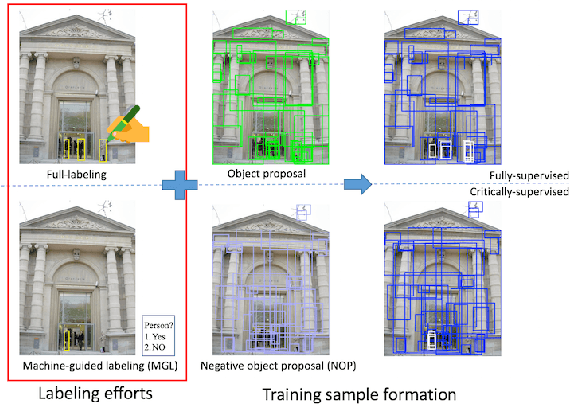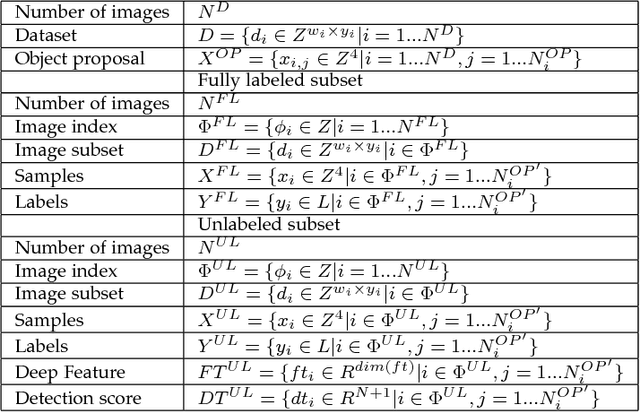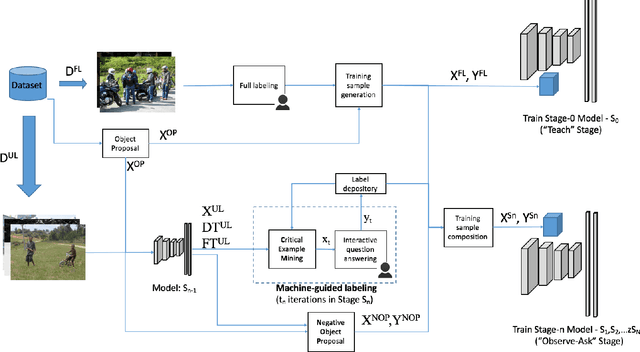A Taught-Obesrve-Ask Method for Object Detection with Critical Supervision
Paper and Code
Nov 03, 2017



Being inspired by child's learning experience - taught first and followed by observation and questioning, we investigate a critically supervised learning methodology for object detection in this work. Specifically, we propose a taught-observe-ask (TOA) method that consists of several novel components such as negative object proposal, critical example mining, and machine-guided question-answer (QA) labeling. To consider labeling time and performance jointly, new evaluation methods are developed to compare the performance of the TOA method, with the fully and weakly supervised learning methods. Extensive experiments are conducted on the PASCAL VOC and the Caltech benchmark datasets. The TOA method provides significantly improved performance of weakly supervision yet demands only about 3-6% of labeling time of full supervision. The effectiveness of each novel component is also analyzed.
 Add to Chrome
Add to Chrome Add to Firefox
Add to Firefox Add to Edge
Add to Edge